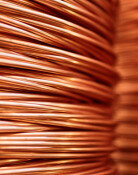China joins the space race
The Soviet Union launched the worlds first artificial satellite Sputnik on Oct. 4, 1957. A month later, Sputnik 2 was launched with a dog on board. The U.S., which had believed it was better than the Soviet Union in science, was in shock. You have a better rocket but we have a better color television, U.S. President Nixon told Soviet Premier Nikita Khrushchev sarcastically. But many Americans considered this a "second Pearl Harbor."
The shock turned into awe when Soviet cosmonaut Yuri Gagarin became the world`s first person in space in April 1961. Two days later, U.S. President John F. Kennedy called a meeting of an emergency committee that resulted in Americans putting a man on the moon before the 1960s ended. From that point on, space became a place for propaganda competition between the two countries in the Cold War era. After spending 40 billion U.S. dollars, the U.S. landed astronauts on the moon on July 20, 1969, six years after Kennedys death and five months before the end of the 60s.
In the 1970s, a wind of detente also blew in space. The U.S. spacecraft Apollo docked with the Soviet craft Soyuz 977 kilometers above the Atlantic Ocean. The Apollo crew exchanged flags and ate lunch in the Soyuz. Instead of wasteful competition, the two countries began to make space a venue for cooperation and peace. Twenty years later, the U.S. Atlantis docked with Mir in orbit in June 1995, signaling the end of the Cold War in space.
Chinas fourth manned spaceship Shenzhou-9 docked with the Tiangong-1 module in orbit Monday. Following the U.S. and Russia, China has developed manned and unmanned space docking technology. Space science has a huge impact on value-added industries such as electronics, communications, materials and aviation. Will Chinas space science, which threatens the dominance of the U.S. and Russia in the sector, raise the quality of life for people to another level or open a new Cold War era through competition with the U.S.?
Editorial Writer Lee Hyeong-sam (hans@donga.com)







